Breast Implant Illness Summary
- Breast implant illness and its symptoms are real.
- There is a significant number of patients with BII (88%) who experience an improvement in symptoms after breast implant removal surgery.
- There are many patients without BII who opt for implant removal for a variety of reasons.
- It was your decision to have implants placed. It is also your decision to have your implants removed, with knowledge of the potential risks and benefits of surgery.
Breast implant illness (BII) is a relatively new term to describe the constellation of symptoms that can develop after undergoing breast augmentation using breast implants. It is also sometimes referred to as autoimmune/inflammatory syndrome induced by adjuvants (ASIA) or human adjuvant disease.
While most women who have breast implants are happy with them and don’t develop any problems, an increased awareness around the health implications of breast implants in recent years has resulted in a surge of patients reporting symptoms they feel are directly connected to their saline or silicone breast implants.
How Common Is Breast Implant Illness?
It is not yet clear how many people suffer from BII. Anyone with breast implants can develop BII, and more than 300,000 breast augmentations are performed in the U.S. each year. The FDA asks patients to report symptoms of BII so they can keep track of how many people are affected. They have received thousands of reports, with unexplained fatigue being the most cited symptom. However, the actual number of people affected is likely much larger.
What are the Symptoms of Breast Implant Illness?
While BII impacts each person uniquely, the most common complaint is extreme fatigue that does not improve with adequate rest. BII may also cause a number of physical, systemic and cognitive symptoms that can negatively impact your overall health and quality of life.
Physical Symptoms
- Joint pain and muscle aches
- Hair loss or texture changes
- Skin changes, including rashes and dryness
- Recurring sinus infections
- Difficulty swallowing
- Symmetric joint pain (affects both sides, knees, ankles and wrists)
- Numbness, tingling or burning sensations
- Neck and shoulder discomfort
- Heart palpitations and chest discomfort
- Shortness of breath and a chronic cough
- Excessive throat clearing
- Changes in the sclera (whites of the eyes)
- Ankle pain upon waking
- Swollen eyes (particularly the lower eyelids)
- Discoloration of the hands or feet
Systemic Symptoms
- Autoimmune conditions (including change in Hashimoto’s, rheumatoid arthritis and lupus, fibromyalgia, SLE)
- Recurring infections and slow healing
- Hormonal imbalances
- Irregular menstrual cycles
- Fertility challenges and low libido
- Digestive issues (IBS, reflux and a leaky gut)
- New food sensitivities and allergies
- Unexplained weight changes
- Bladder problems and frequent urination
- Liver and gallbladder dysfunction
- Night sweats and fevers
- Swollen lymph nodes
- Concern for neurologic disorders such as multiple sclerosis (MS)
Cognitive & Psychological Symptoms
- Brain fog and memory difficulties
- Headaches and migraines
- Vertigo and balance issues
- Anxiety and panic attacks
- Depression and mood changes
- Tinnitus (ringing in the ears)
- Vision changes
- Sleep disturbances and fatigue
- Difficulty concentrating or focusing
Countless women have been to the ER for heart palpitations or chest pain, been seen by a gastroenterologist for upper GI issues, or consulted with a neurologist, orthopedist, endocrinologist, dermatologist, rheumatologist, or other specialist without finding a resolution for their symptoms. They might even be placed on medications that don’t really help but carry additional side effects. Many patients report being able to stop or significantly reduce many medications after having their implants removed.
Research has documented more than 100 different symptoms associated with breast implant illness, and patients may experience any combination of these symptoms. These symptoms can appear any time after breast augmentation, either right away or years later. However, since BII isn’t a disease for which doctors can explicitly test, determining whether your symptoms are related to your implants is typically a process of elimination, ruling out other treatable causes first. The challenge for doctors is determining who will potentially benefit from implant removal.
What Causes Breast Implant Illness?
While researchers haven’t identified a single definitive cause of BII, several theories may help explain why some women develop symptoms. Some of the theories being evaluated include the role of biofilms, heavy metals, allergic reactions and an immune response to foreign objects.
Biofilms
BII is often associated with biofilms — colonies of bacteria that adhere to the surface of the breast implant. These biofilms can originate from bacteria naturally present in breast tissue or may be introduced during the surgical process. Unlike a bacterial infection, biofilms:
- Are not an active infection
- Don’t respond to antibiotics because they employ unique strategies to “evade” the body’s defenses and immune system
- May trigger immune responses that lead to tissue damage
- Are strongly linked to capsular contracture (a tightening of the scar tissue around implants that becomes hard and painful)
Recent studies examining DNA and antibody data have not confirmed an infectious etiology. However, some patients with BII were found to have higher levels of some cytokines, proteins associated with inflammation that regulate the body’s immune response to infection.
Heavy Metals
It is suspected that some women’s symptoms may be the result of an allergic reaction or immune response to some of the materials found in breast implant shells. Both saline and silicone breast implants contain small amounts of heavy metals — either as an ingredient or as a byproduct from the manufacturing process. However, data from the Aesthetic Surgery Education and Research Foundation (ASERF) detected heavy metals such as silver, aluminum, cobalt, molybdenum, selenium, tin and platinum in less than 10% of implant removal cases. All results were reportedly below established safety thresholds, not presenting a clear connection between BII and heavy metal toxicity.
How Can I Reduce My Risk?
Our immune systems react differently to foreign objects in the body, making it nearly impossible at this time to determine a woman’s risk of breast implant illness before augmentation. Any of these factors — or even a combination of these and other factors — may be the cause of BII symptoms in women, and symptoms may develop with normal aging and hormonal changes.
Implant removal is your choice. Many BII symptoms may be associated with other treatable illnesses. Having a general health screen is good practice and may include blood tests and a physical exam and additional assessments as recommended by your general practitioner, such as:
- Complete blood count test or CBC
- Metabolic profile tests
- Liver function tests
- Thyroid function tests
- Vitamin D levels
- Erythrocyte sedimentation rate (ESR) — a blood test that can show if you have inflammation in your body
- C-reactive protein test (CRP) — CRP levels have been found to be elevated in some with BII and with inflammation
- Autoimmune screening
- Antinuclear antibody (ANA) test
- Rheumatoid factor test
- Ferritin level test
- Serum IgG, IgM
- Autoimmune disease markers
- Antinuclear antibody
- Antineutrophil cytoplasmic antibody
- Anti-double strand DNA
- Anti-Sjögren’s syndrome A
- Anti-Sjögren’s syndrome B
- Rheumatoid factor
- Anti-ribonucleic acid protein
- Anti Sm
- Antiscleroderma antibodies
- Anti-TTG, tissue transglutaminase
Most of our patients seeking implant removal to alleviate their BII symptoms respond positively shortly after explant surgery. Those with clearly defined objective findings, such as chronic skin rashes, have, in some cases, demonstrated rapid symptom resolution when other treatments have failed. Our positive response rate of reported improvement, reduction, and/or elimination of general BII symptoms remains consistent with recent data from ASERF (which reports an 88% reduction in symptoms at one year following implant removal). Their findings indicate that:
- More than 94% of BII subjects with symptoms they attribute to their implants do experience symptom improvement after removal of their implants.
There are women who do not have a positive experience with implant removal and regret their explantation, making the decision to have your implants removed worthy of careful consideration. Symptoms that do not resolve after implant removal should be further evaluated. Even with resolution of symptoms, the aesthetic appearance following implant removal may result in significant dissatisfaction.
Who is likely to Respond to Implant Removal?
While there’s no single test that can predict who will respond best to implant removal, our clinical experience and research have identified several patterns that can help guide treatment decisions. Patients tend to fall into several categories: those with normal blood test profiles, those with early inflammatory markers, and those with preexisting conditions.
Patients With Normal Blood Test Results
Many women with normal blood work and lab profiles show significant improvement after implant removal, particularly when their symptoms:
- Don’t align with typical disease patterns
- Include unusual combinations
- Haven’t been resolved despite visits to multiple specialists
Patients With Early Inflammatory Markers
Some patients show elevated inflammatory markers (such as positive ANA, elevated ferritin, CRP, and ESR) that suggest early autoimmune activity but don’t yet qualify for a specific diagnosis. These “seronegative” cases often experience:
- Partial to complete symptom resolution after implant removal
- Varying levels of long-term improvement
- Potential need for ongoing monitoring
Patients with Preexisting Conditions
For patients who have established diagnoses like autoimmune disease or endocrine disorders, a complete resolution of symptoms is less common upon having their breast implants removed. However, these patients may experience:
- Other unexpected positive outcomes
- Notable improvement in symptoms
- Reduced need for medication after implant removal
How is Breast Implant Illness treated?
For many women, breast implant removal is an effective treatment for resolving their symptoms. Breast implant removal is also referred to as explant surgery or breast implant extraction. Plastic surgeons trained in augmentation should have experience and training in removals, revisions, and capsulectomies. As with any procedure, you should select your surgeon based on their knowledge, skill, experience and outcomes. Board-certified plastic surgeon Dr. Rudderman has extensive experience with breast implant illness in Atlanta and has performed over 5,000 breast surgeries. He understands the toll BII can take on your health and is committed to helping you regain your well-being with expert care and an empathetic approach tailored to your unique needs.
The Surgical Approach
Breast explant surgery is commonly performed through an incision along the breast fold (the inframammary crease) to remove the breast implant. The most technical aspects of the surgery are removal of the capsule of scar tissue surrounding the implant and restoring the soft tissues of the breasts to create an aesthetically pleasing appearance when practical. Dr. Rudderman tailors his surgical approach based on each patient’s unique anatomy and implant placement, carefully and safely removing the capsule while protecting the healthy functional tissues.
Once your implants and capsules have been removed and the soft tissue balance restored, Dr. Rudderman will close the incisions. Minimal bandages and a post-operative bra will be applied to support healing. Some women choose to have a breast lift (mastopexy) to address loose and excessive skin to help restore a more normal shape — this may be performed at the same time as explant surgery or at a later date, depending on your needs and exam. Fat grafting can also be performed to correct dimpling or contour irregularities.
What to Expect After Surgery
We understand that the decision to take out your implants is not an easy one, especially when no one else can ensure the procedure will alleviate your symptoms. While it is not possible to accurately predict if the implant removal will positively impact your health, many women report a significant improvement soon after explant surgery. It is very common for patients to describe symptoms that might not have been associated with BII preoperatively have improved. Women have described breathing improvements, rashes disappearing, neck, shoulder, and back pain rapidly resolving, hair growth resuming, allergies subsiding, and joint and chest discomfort and palpitations resolving, all well beyond what could be explained by placebo alone.
The theory of nocebo (when the expectation of an adverse reaction worsens outcomes — the opposite of the placebo effect) may be inadequate to explain the more objective or rheumatologic symptoms reported with BII.
Beyond BII: Other Reasons for Implant Removal
Many women decide to undergo breast implant removal for reasons other than BII, including:
- Physical pain or discomfort during daily activities
- Changes in breast shape or size over time
- Desire for a more natural appearance
- Preventive removal; desire to avoid procedure at an advanced age
- Concerns about breast implants deflating or rupturing
- Breast shape changes during activity / exercise
It’s important to understand that breast implants are not lifetime devices. While they don’t have a specific expiration date, you should always monitor for potential symptoms or complications. If you notice any changes or have any concerns, talk to your doctor about implant removal or replacement.
Patient Testimonials
“Dr. Rudderman is extremely knowledgeable when it comes to BII. He took the time to go over my health history in detail and did a very thorough exam. He is very informative and to the point. His bed side manner was great— He actively listened as I spoke about my concerns and addressed everything I mentioned. The staff there is top notch. Bonnie made sure I didn’t leave with any unanswered questions and Lauren was able to discuss all financials in detail and get me scheduled for my upcoming procedure before I left the office.”
Melissa M.
“The best surgeon and staff, hands-down. Dr. Rudderman is an amazing surgeon with excellent bedside manor. He actually cares! He performed my breast implant removal + lift, and I couldn’t be happier with my result. He listened to me when I shared that I believed my implants were causing me issues, validated my feelings and made this process incredibly calming in what hasn’t felt the calmest internally. Forever grateful for this entire practice and would recommend Dr. Rudderman to anyone seeking any sort of plastic surgery. He’s a true artist!”
Amanda H.
Schedule a Consultation With Us
If you’ve experienced what you believe to be symptoms of BII and have felt dismissed by other surgeons or healthcare providers, you are not alone. Many women come to our offices feeling frustrated because their concerns have not been heard, leaving them without a diagnosis. We are here to listen and to help you find relief from your symptoms. Patients have symptoms that are real, and a high percentage report improvement or resolution after implant removal.
If you develop unexplained symptoms that you suspect may stem from your breast implants, schedule a consultation with board-certified plastic surgeon Dr. Rudderman. As an experienced BII specialist who has performed thousands of successful explant surgeries, he will take time to understand your symptoms and help you make an informed decision about your health. Call us at 678-566-7200 or complete our online contact form to schedule your consultation today.
Breast Implant Illness Research and Resources
The lack of objective lab evidence for BII has contributed to some skepticism around this condition; however, the stories of women who claim to be suffering from BII are very compelling. While a causative relationship has not been established, researchers at The University of Texas MD Anderson Cancer Center have found that silicone implants are associated with some rare diseases, autoimmune disorders, and other conditions. Their studies underscore the need for more research in this area.
If you are interested in learning more about BII, you may also find these additional articles and resources helpful:
- Danica Patrick’s Breast Implant Illness
- Impact of Capsulectomy Type on Post-Explantation Systemic Symptom Improvement: Findings From the ASERF Systemic Symptoms in Women-Biospecimen Analysis Study: Part 1. Glicksman C, McGuire P, Kadin M, Lawrence M, Haws M, Newby J, Ferenz S, Sung J, Wixtrom R.Aesthet Surg J. 2022 Jun 20;42(7):809-819. doi: 10.1093/asj/sjab417. PMID: 34915566 Free PMC article.
- Heavy Metals in Breast Implant Capsules and Breast Tissue: Findings from the Systemic Symptoms in Women-Biospecimen Analysis Study: Part 2. Wixtrom R, Glicksman C, Kadin M, Lawrence M, Haws M, Ferenz S, Sung J, McGuire P.Aesthet Surg J. 2022 Aug 24;42(9):1067-1076. doi: 10.1093/asj/sjac106. PMID: 35474526 Free PMC article.
- Microbes, Histology, Blood Analysis, Enterotoxins, and Cytokines: Findings From the ASERF Systemic Symptoms in Women-Biospecimen Analysis Study: Part 3. McGuire P, Glicksman C, Wixtrom R, Sung CJ, Hamilton R, Lawrence M, Haws M, Ferenz S, Kadin M.Aesthet Surg J. 2023 Feb 3;43(2):230-244. doi: 10.1093/asj/sjac225. PMID: 35980942 Free PMC article.
- Longevity of Post-Explantation Systemic Symptom Improvement and Potential Etiologies: Findings From the ASERF Systemic Symptoms in Women-Biospecimen Analysis Study: Part 4. Glicksman C, McGuire P, Kadin M, Barnes K, Wixtrom R, Lawrence M, Haws M, Ferenz S, Sung CJ, Hamilton RG, Faasse K.Aesthet Surg J. 2023 Sep 14;43(10):1194-1204. doi: 10.1093/asj/sjad098. PMID: 37040435 Free PMC article.
- The Aesthetic Surgery Education and Research Foundation announces the BII Study Task Force
- The Aesthetic Society and The Aesthetic Surgery Education and Research Foundation Unveils Findings from The Biospecimen Study on Breast Implant Illness (BII)
- FDA Updates Analysis of Medical Device Reports of Breast Implant Illness and Breast Implant-Associated Lymphoma
- Assessing Long-Term Outcomes in Breast Implant Illness: The Missing Link? A Systematic Review
- Breast Implant Illness: A Way Forward. Mark R Magnusson 1, Rod D Cooter 1, Hinne Rakhorst 1, Patricia A McGuire 1, William P Adams Jr 1, Anand K Deva 1 Plastic and Reconstructive Surgery • March Supplement 2019
Written and reviewed by:
Dr. Randy Rudderman, who is board certified by the American Board of Plastic and Reconstructive Surgery (1994). He practices medicine at his offices in Alpharetta and Atlanta. The content written reflects current accurate information and is consistent with ethical positioning of the ASPS. (American Society of Plastic Surgeons).
Learn more about Dr. Rudderman, his medical training, and credentials.
Additional Education and Patient Stories About BII
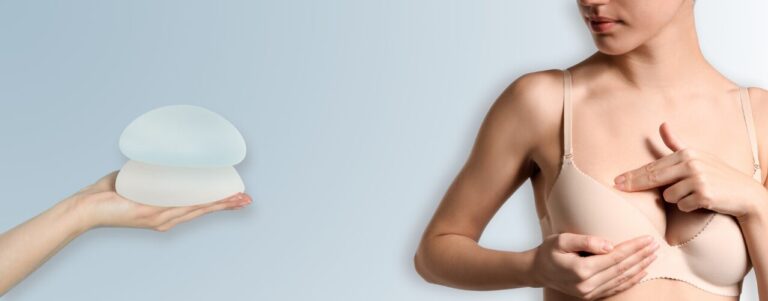
Understanding Breast Implant Capsular Contracture
After breast augmentation surgery, it’s normal for your body to form a capsule around the implants composed of cell layers of vascularized connective tissue (Fibrous tissue), and the capsule can become problematic when thickened and constricted. The change in feel and look of your breast can be a confusing and frustrating experience. Essentially all non-biologic…

Breast Implant Removal Surgery Options and Expectations for Outcomes
There are many reasons for exploring the option of breast implant removal. Women often seek options trying to decide if they will look and feel better without implants. Some reasons are: And there are those with issues with implants. And many more reasons. All are valid. In the best of circumstances, implants are not considered…
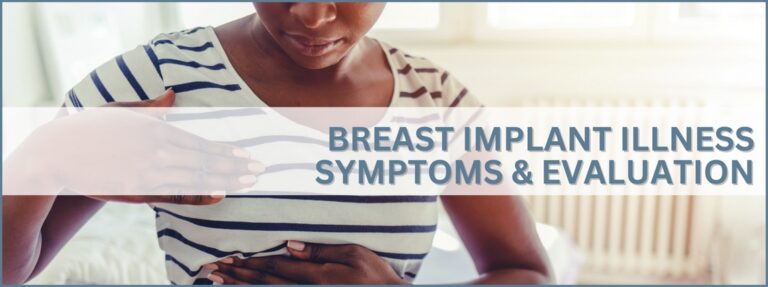
Breast Implant Illness Symptoms and Lab Test Evaluation
Breast Implant Illness refers to a constellation of symptoms that are present with patients with implants, short or long term. Studies have existed for over a decade indicating significant reduction and or resolution in symptoms in patients that undergo implant removal that do not have documented other contributory diseases. Further reviews are ongoing that will…
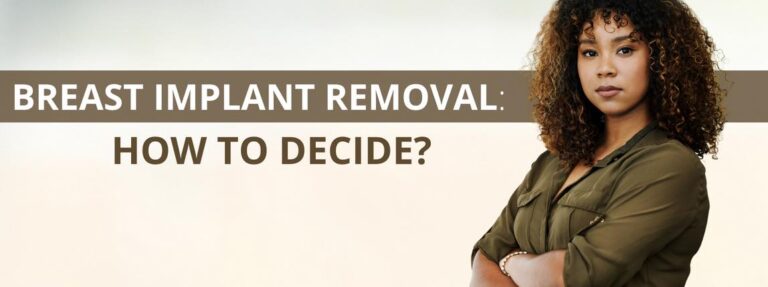
Deciding on Breast Implant Removal Surgery? Here Is What You Need To Know
Breast implant removal surgery requires precise management, evaluation, and surgical execution to achieve the most predictable results. Breast implant removal is considered by many to be a new trend. For many women, the recent awareness of Breast Implant Illness (BII), has created awareness for those with symptoms, and for many who have no symptoms but…

Breast Implant Illness: A Patient Story About Getting Her Life Back
A 49 year-old woman from North West Georgia gets her life back after breast implant removal surgery performed by Dr. Rudderman, here is her story. Surgery Date: 6/9/2022 I got my saline implants in 2009, Mentor brand, smooth style, placed under the muscle. I started having health problems about 8 years or so ago. The…
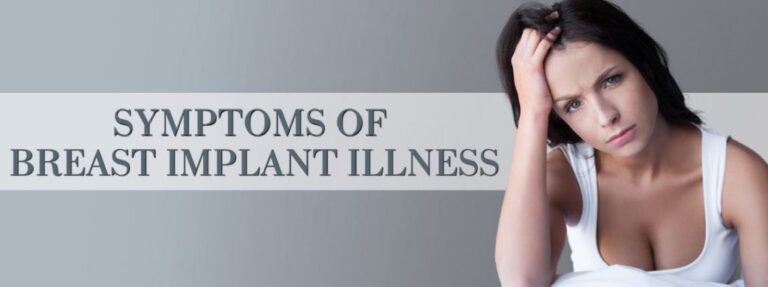
How to Understand Breast Implant Illness Symptoms
Breast Implant Illness (BII) is a term used to refer to a constellation of symptoms that can develop after undergoing breast cosmetic augmentation or reconstruction or using breast implants. Women who self-identify as suffering from this condition feel their symptoms are directly connected to their saline or silicone breast implants. BII impacts each person uniquely….
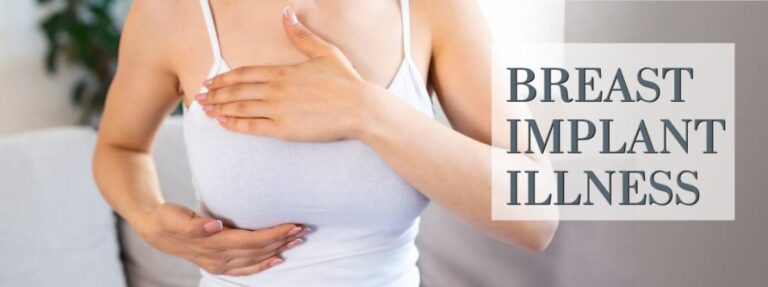
What You Need to Know About Breast Implant Illness
Breast procedures for shape and size change are as popular now as ever. While breast implants remain in demand globally, the desired outcome from breast surgery is changing for many. More women of all ages are interested in options for breast shape and size that is more natural-looking and complimentary to their body. And even…


